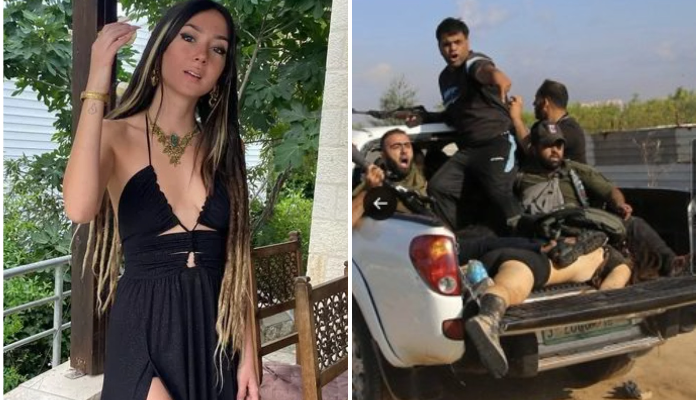UN Funding to Hamas Lead to Funding Suspensions by Several Countries
The United Kingdom and Finland have announced a temporary pause in funding to the United Nations Relief and Works Agency for Palestinian Refugees in the Near East (UNRWA) following allegations that 12 staff members were involved in the October 7, 2023, attacks by Hamas in Israel. The United States, Australia, Canada, and Italy have also suspended their funding in response to the allegations.
The UK foreign office expressed its appall at the allegations, stating that it is “appalled by allegations that UNRWA staff were involved in the 7 October attack against Israel, a heinous act of terrorism that the UK Government has repeatedly condemned.” The Finnish foreign ministry, which provides 5 million euros (approximately $5.4 million US) per year, suspended its funding due to the “serious allegations” and called for an “independent and thorough investigation of the matter.”
Hamas, in an official statement, condemned what it called Israel’s “threats and blackmail” against UNRWA. The group criticized the relief agency’s decision to terminate the accused employees in Gaza and called for an “impartial investigation” into Israel’s allegations. Additionally, Hamas disputed a claim made by Israel’s UN ambassador, stating that the World Health Organization is in “collusion” with the Hamas movement, dismissing it as a “hollow accusation” and emphasizing the importance of these agencies in providing aid in the besieged enclave.
The UN has not designated Hamas as a terrorist organization. Some countries, including the United States, Israel, Canada, and the European Union, have designated Hamas as a terrorist group.
The United Nations (UN) has faced various funding scandals and controversies over the years. While the organization plays a crucial role in addressing global issues and promoting international cooperation, instances of mismanagement, corruption, and inefficiency have been reported. Here are a few notable UN funding scandals:
- Oil-for-Food Program (2004): The Oil-for-Food Program, administered by the UN in Iraq from 1996 to 2003, aimed to allow Iraq to sell oil to fund humanitarian needs. However, the program became marred by allegations of corruption, kickbacks, and mismanagement. Several UN officials were accused of benefiting from the scheme.
- Peacekeeping Mission Scandals: UN peacekeeping missions have faced allegations of sexual exploitation and abuse by peacekeeping personnel. Cases in countries like Haiti and the Central African Republic raised concerns about the UN’s ability to prevent and respond to such misconduct.
- UNESCO Corruption Scandal (2012): The Director-General of the United Nations Educational, Scientific and Cultural Organization (UNESCO), Irina Bokova, faced accusations of corruption in the recruitment process. Allegations included favoritism and irregularities in promotions.
- North Korea Funding Controversy (2017): Reports emerged that UN agencies operating in North Korea faced challenges in ensuring that their funds were not diverted to the country’s military or nuclear programs. Critics raised concerns about the transparency and accountability of UN aid in the region.
- Global Fund to Fight AIDS, Tuberculosis, and Malaria (2011): While not a UN agency, the Global Fund faced allegations of financial mismanagement and misuse of funds. Investigations revealed instances of corruption and fraud in grant programs.
Throughout Donald Trump’s presidency, he expressed a skeptical view of the United Nations (UN) and, at times, criticized its effectiveness and efficiency. Here are some key points related to Trump’s stance on the UN:
- Funding Cuts: One notable action was Trump’s decision to cut funding to certain UN agencies. In 2018, the United States announced significant cuts in funding to the United Nations Relief and Works Agency for Palestine Refugees (UNRWA) and withdrew financial support for the UN Population Fund (UNFPA), citing concerns about how the funds were used.
- National Sovereignty: Trump emphasized the importance of national sovereignty and often conveyed skepticism about international agreements and organizations that, in his view, could infringe on U.S. sovereignty. He announced the U.S. withdrawal from several international agreements, including the Paris Agreement on climate change and the Iran Nuclear Deal.
- UN Security Council: Trump occasionally criticized the UN Security Council’s effectiveness, particularly regarding issues like North Korea. He called for reforms within the UN system to make it more efficient and accountable.
- America First: The “America First” policy, a key theme of Trump’s presidency, underscored his commitment to prioritize U.S. interests in international relations. This approach sometimes led to tensions with multilateral institutions like the UN.
It’s important to note that opinions on Trump’s approach to the UN varied, with some seeing it as a necessary push for reform and Democrats expressing concerns about the potential consequences of reduced U.S. engagement in international cooperation.
The Hamas terrorist attack on Israel on October 7, 2023, will go down as one of the worst terrorist attacks in history. Recognizing its impact, however, involves understanding the many dimensions of the attack, its consequences for a small state like Israel and a small area like the Gaza Strip, and its global ramifications.
In this commentary, CSIS researchers in the Transnational Threats Project present 10 figures to illustrate different dimensions of the attack. These include comparisons of the attack’s fatalities and the hostages taken with other such terrorist operations in other countries, comparisons between October 7 and past attacks on Israel, and images of Hamas’s tactics on October 7. Taken together, these visualizations and images can help illustrate why Israeli leaders felt compelled to launch a devastating response to the October 7 attacks, how the casualties Israel inflicted on Palestinians in Gaza compares with past operations, and the difficulties Israel faces regarding the hostages taken and other challenges.
The October 7 Attack in Historical Context
Hamas’s attack on Israel on October 7 is the third-deadliest terrorist attack since data collection began in 1970, based on number of fatalities, with the 9/11 attacks representing the worst mass fatality terrorist attack. Islamic State attacks are three of the top nine deadliest attacks, with two attacks in the top five. Since the October 7 attack, Israeli officials compared Hamas’s tactics with the scale of the violence to the Islamic State’s campaign in Iraq and Syria. Although Hamas’s attack was brutal, the Islamic State undertook multiple mass casualty attacks across several years—a level of violence Hamas has not equaled. Estimates of fatalities from Islamic State terrorist attacks and military operations are greater than 33,000 people.
The Israel-Hamas conflict has a complex and multifaceted history marked by a series of events, tensions, and negotiations. Here’s a brief overview:
- Formation of Hamas (1987): Hamas, an Islamist Palestinian organization, was founded in 1987 during the First Intifada (Palestinian uprising against Israeli rule).
- Charter and Objectives: Hamas’s charter, established in 1988, outlines its goal of establishing an Islamic state in historic Palestine and rejecting any recognition of Israel.
- Gaza Takeover (2007): In 2007, Hamas seized control of the Gaza Strip after winning legislative elections the previous year. This led to a political division between Hamas in Gaza and the Fatah-led Palestinian Authority in the West Bank.
- Rocket Attacks and Blockade: The conflict has seen recurrent rocket attacks from Gaza into Israel and Israeli airstrikes in response. Israel has maintained a blockade on Gaza, citing security concerns.
- Military Conflicts: Three major conflicts, known as Operation Cast Lead (2008-2009), Operation Pillar of Defense (2012), and Operation Protective Edge (2014), resulted in significant casualties and damage on both sides.
- Ceasefires and Unrest: Periodic ceasefires have been brokered, but tensions persist. Protests, clashes, and incidents occur intermittently, leading to further violence.
- International Involvement: The international community, including the United Nations, has been involved in attempts to mediate and find a two-state solution to the Israeli-Palestinian conflict. However, a comprehensive resolution remains elusive.









